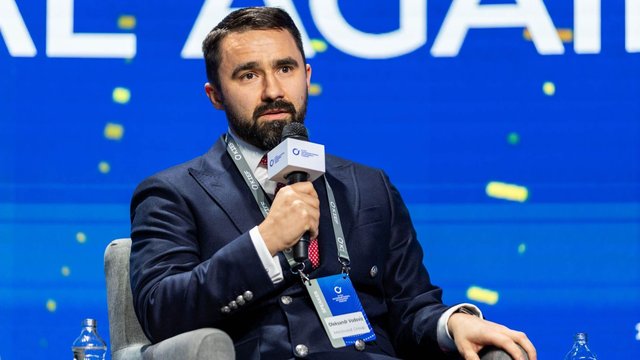Ukraine needs global industrial policy to move forward – Metinvest top manager

Ukraine needs a global industrial policy at the legislative level, which would promote the development of industry, similar to the practice of the USA and Germany, Oleksandr Vodoviz, head of the office of the CEO of Metinvest Group, said at the Kyiv International Economic Forum in Kyiv.
"If we want to move forward, Ukraine needs a global industrial policy at the legislative level that promotes industrial development, similar to practices in the USA and Germany. Such a policy involves large projects that engage related sectors and allow the country to effectively leverage its competitive advantages," the top executive said during the Make Ukraine Industrial Again panel.
According to him, big business and skilled personnel are key to the revival of Ukraine’s industry. As Ukraine integrates into Europe, local businesses will have to fight for their place independently, since competitors will not wait. Success requires government support for strategic industrial sectors and a willingness from businesses to partner with the state.
"For example, in metallurgy, the employment multiplier is 1:8 – one of the highest among all sectors. One job in the steel industry creates employment for eight specialists in related sectors," he added.
Metinvest’s enterprises continue to operate under shelling and power outages, so the company’s priority is survival rather than development or investment.
"Of our 110,000 employees, only 50,000 remain. We have lost half of our business, and the other half continues to be destroyed. Yet even today, we remain Ukraine’s number-one exporter. This means the economy has shrunk by half. And we shouldn’t trust the numbers that paint a picture of ‘everything is fine’ – it’s time to get out of this warm bath," said Vodoviz.
He also noted that in both Europe and Ukraine, it is large corporations driving the economy forward, capable of implementing large-scale projects. When it comes to industrial revival, he stressed that projects worth $100-300 million are insufficient: they cannot build a strong industrial base, become economic drivers, or deliver the desired GDP growth.
At Metinvest alone, the credit portfolio totals $2.5 billion. For comparison, developing a rare-earth mineral quarry requires $1.5 billion in initial investment just to remove a 50-meter layer of soil.
Another factor in industrial revival is making the sector more attractive to young people.
One major obstacle to industry growth is access to financing.
"There is the $8 billion Ukraine Facility program. About 160 companies, including ours, submitted their projects, but access to these funds is currently blocked. We hope the government will pay attention to this," he explained.
Another challenge is external borrowing. The National Bank of Ukraine has made significant efforts, liberalizing conditions and allowing businesses to pay interest on bonds. However, repayment of the principal remains impossible, and in 2026 companies may face the risk of default.
The biggest challenge for industry remains the workforce shortage. Due to mobilization and the mass emigration of young specialists, the company cannot launch Inhulets Mining, which would create 7,000 jobs.
Vodoviz added that the labor issue will remain a serious challenge even after the war ends, as a large number of people have left the country.
Another problem for industrial enterprises is the unpredictability of tariff policy.








